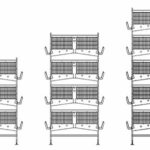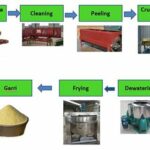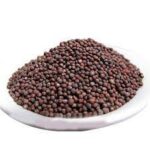Afrimash Graduated First Two Interns
Pressure Mounts on Communities Hosting Displaced People Affected by Boko Haram
… Linking agrobiz, sustainable environs, people & technology
The Vital Role of Adapted and Resilient Pastoral Systems
1 July 2016. Ouagadougou, Burkina Faso. The workshop on Policy Dialogue and Strengthening of the capacity of pastoralists’ networks and organizations reaffirmed the vital role of adapted and resilient pastoral systems in the face of climate change. The three-day gathering workshop was organized by the Department of Rural Economy and Agriculture (AUC/DREA), through Pastoralism Division, under the theme: “Resilience and adaptation to drought conditions and pastoralists systems in Africa”. It was attended by various experts and actors, namely representatives of the AUC, Regional Economic Communities (RECs), pastoralist organisations, Farmers’ Organizations, National Governments and Civil Society Organizations.
The main objective of the workshop was to understand the mechanism for assessing and predicting risks, monitoring and early warning in pastoralists’ regions. The workshop provided the opportunity for the creation of platform for exchanges, dialogues and cooperation among African pastoralist organizations and networks which would facilitate the management, sharing and dissemination of knowledge and best practices of pastoralism.
Delivering the opening remarks on the behalf of AUC, Dr Ahmed ELMEKASS, underlined the importance of pastoralism despite the vulnerability of pastoralists and hence the need for promotion of sustainable pastoralism to take the place it deserves in the debate on development of natural resource management strategies.
“Some of the critical elements necessary to strengthen the capacity of pastoralists include livestock development, policy and governance, gender balanced development, equitable resource tenure, access to social services in addition to efficient resource use”. Mr. Djibo Bagna, Head of Board of the network of peasant organizations and producers in West Africa (ROPPA)
After three days of intensive sessions, strong recommendations have been formulated to key targets. The role of the African Union Commission in addressing the plight of pastoralists through the preparation of the Policy Framework for Pastoralism was acknowledged. Also African governments were called on to support the implementation of the Policy Framework by committing adequate resources as well as developing suitable policies and laws to enhance cross border livestock mobility that would go a long way to boost food security and nutrition.
As key messages, the workshop noted the need for concerted actions aimed at mitigating the effects of climate change including technical preventive measures and aspects of socio-economic interventions to ease the vulnerability of populations inhabiting arid and semi-arid zones to ensure resilience and adaptation to drought conditions and pastoral systems in Africa.
Delegates noted pastoralism as a business that is a continuum along the demand and supply value chains that would benefit from investment in public infrastructure and provision of basic services to the pastoral communities. Delegates underscored the need for a robust advocacy campaign with solid and scientific evidence, capacity building, favorable policies, structured investments and technological innovations to make pastoralism an attractive venture for women and youth as well as for financial support through credits. The workshop recognized the sensitive land tenure systems within Member States which affect transformation towards sustainable pastoralism in arid and semi-arid zones.
A key recommendation of the workshop was that AUC, in collaboration with RECs, should provide the needed support to cascade the AUC policy framework on Pastoralism in Africa in the New Generation of Regional Agriculture Investment Plans (RAIPs)/National Agriculture Investment Plans (NAIPs) under theComprehensive African Agriculture Development Programme (CAADP).
African media urged to leverage WBG’s 9,000 open data to boost good governance
… Linking agrobiz, sustainable environs, people & technology















